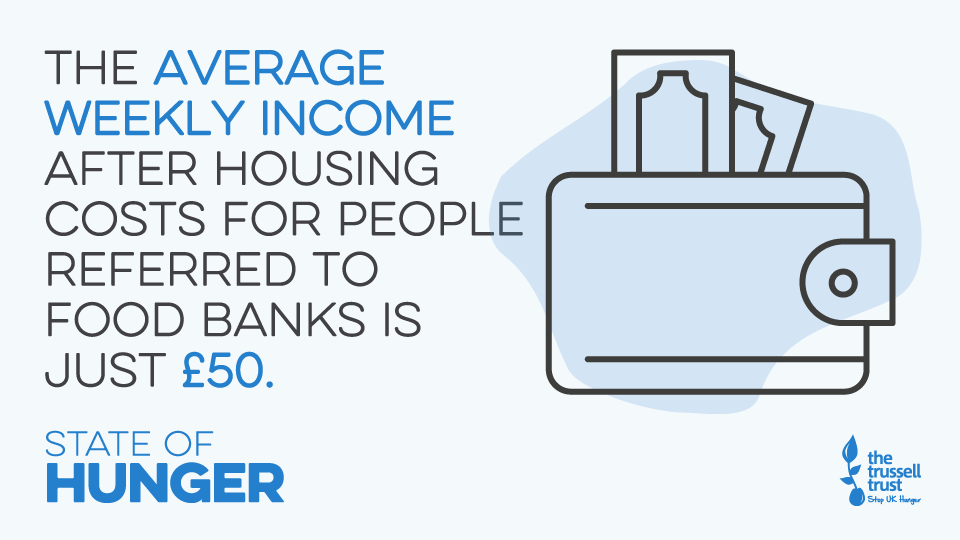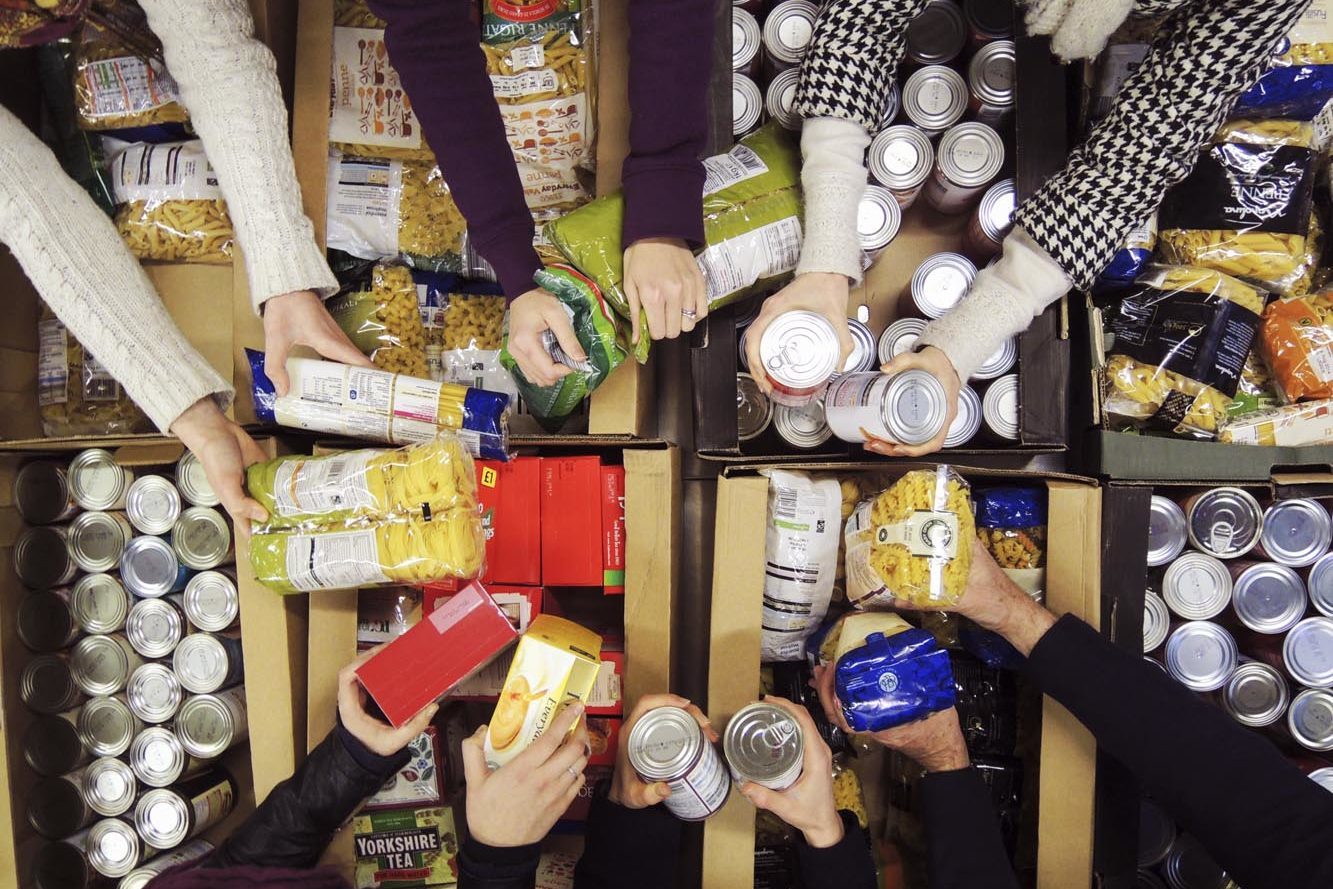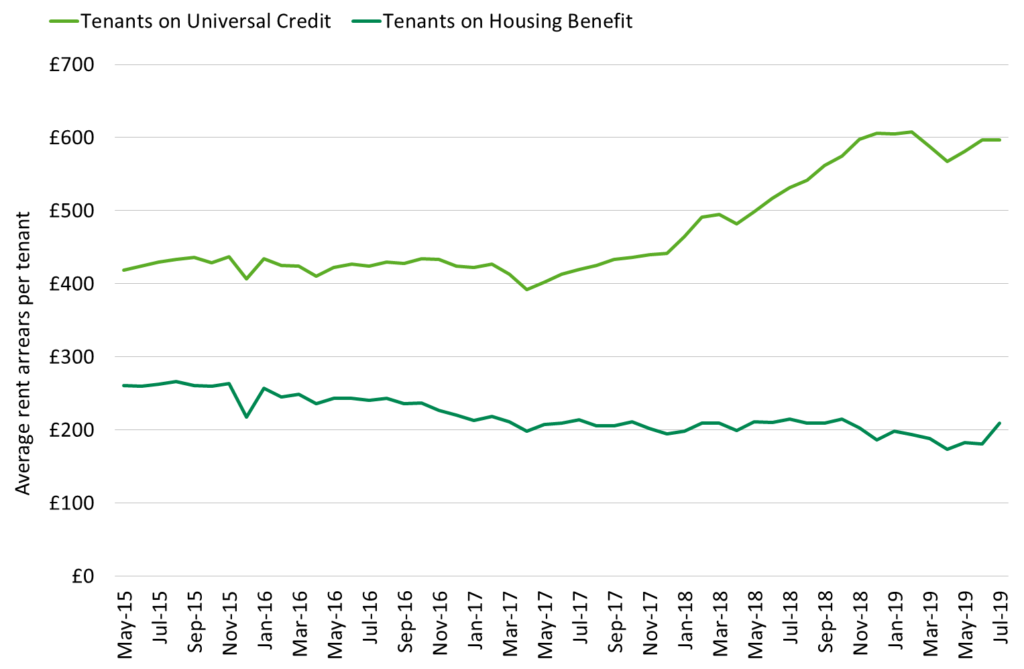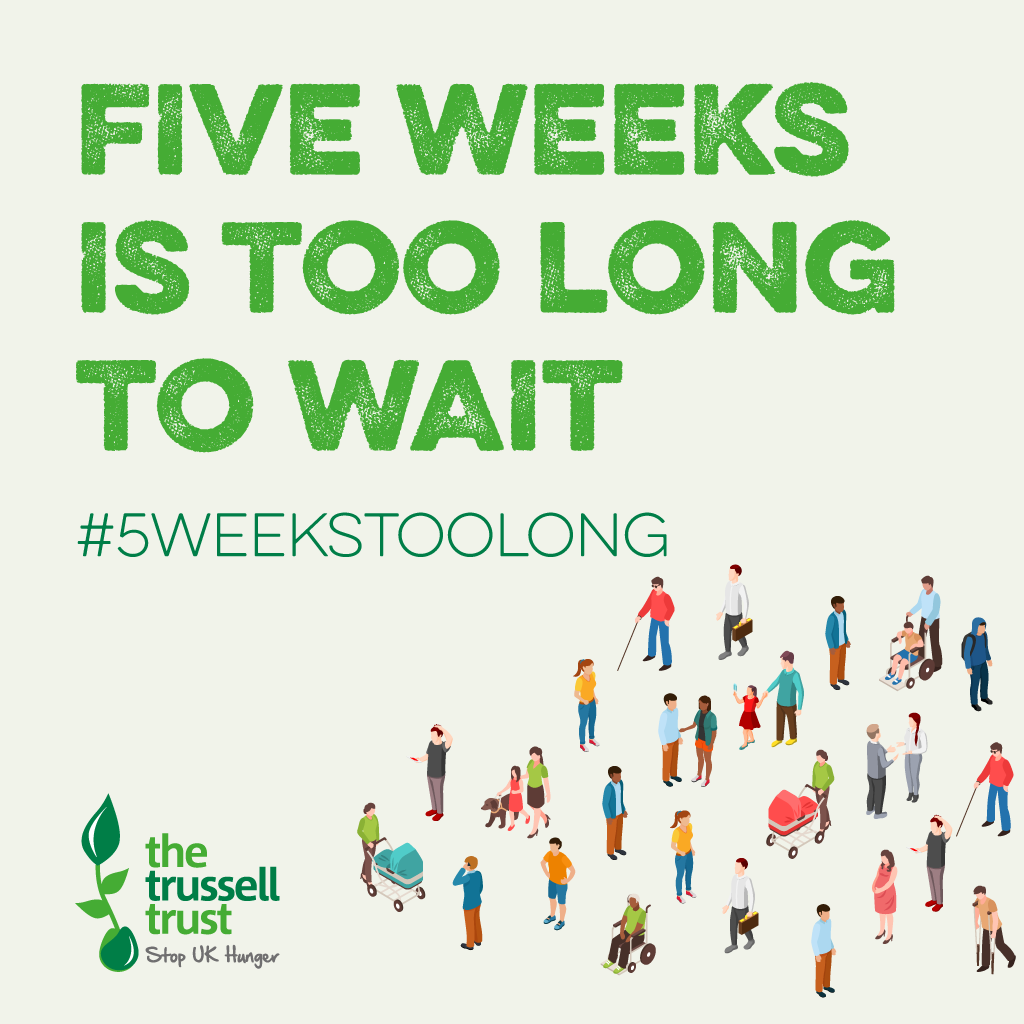We work with food banks in thousands of communities across the UK – all providing vital help to people who would otherwise face hunger. No one should need a food bank, but while the rising tides of poverty continue to sweep people away, we will work with food banks to ensure people who need help can access emergency food and practical, compassionate support.
In order to provide that help while it’s needed, food banks need food donations. Many groups, including schools, churches, local businesses and other community groups, support their local food bank to ensure help is there for local people. We know individuals also want to make a difference in their community, and donating in a supermarket while doing a shop is one of the quickest, easiest ways for people to help.
By partnering with supermarkets at a national level, we’re able to harness more support for individual food banks at a local level while also raising awareness of our work to ensure the best possible help is available to people referred to a food bank. For example, where supermarket stores have permanent boxes installed, their customers can donate regularly, ensuring there’s a continual stream and variety of donated food to food banks in the network; and the grants available to food banks thanks to our work with Asda have helped ensure the right help is there at the right time, by funding things like welfare advisors to sit in food bank centres and support people at the point of crisis.
Our work with supermarkets goes beyond practical support for people at food banks though. We’ll always work to ensure that through our partnerships people referred to food banks are given the best possible support while that help is needed, but we will never compromise our mission to end the need for food banks.
Everything we do is underpinned by our work to challenge the structural issues that lock people into poverty. For example our partnership with Asda has already funded the first phase of State of Hunger, the most in-depth research to date into hunger in the UK. This research will act as a benchmark not just for us, but for government and wider society to better understand the structural issues that sweep so many people into poverty and destitution.
We think it’s important to be able to sit around a table with all of our partners, whether they’re a supermarket or another business, and have frank conversations driven by data and insight from our network about why people need food banks and how we can all work together to bring about change.
We know that most people (86%) forced to use a food bank are not in-work. However, we also have a duty to people who are in-work and struggling to afford the basics to understand what is driving the need for a food bank. We’re currently developing our work in this area, with the help of other charities that have more experience working with the private sector to prevent people from being locked into poverty.
We’ll be sharing our data with an expert charity partner to look into why working people need food banks – and then we’ll be drawing on their know-how to talk with government, businesses and communities about why people need food banks, and how we can work together to change things for the better.
There’s a part for everyone to play so we can reach a future without the need for food banks: government, communities and businesses all need to be working towards a future where everyone has enough money for a decent standard of living if we’re going to get there.
It’s not right that 1.6 million emergency food parcels were given to people by food banks in our network last year. We know this can change – but we need everyone to play their part.
Read more









